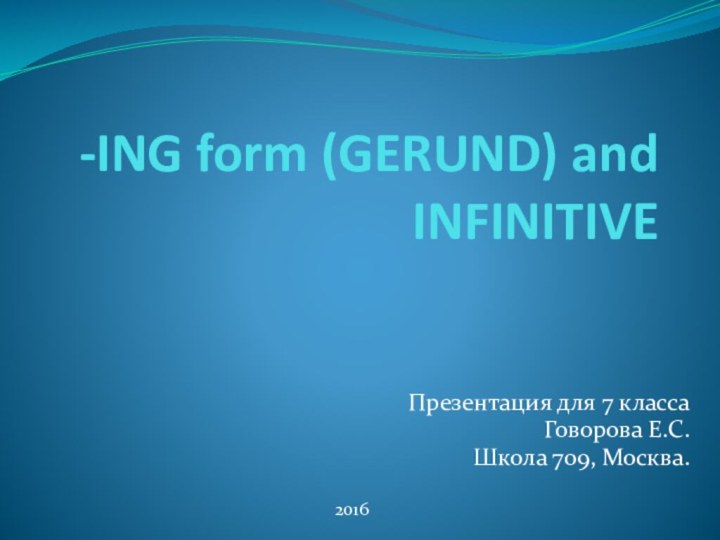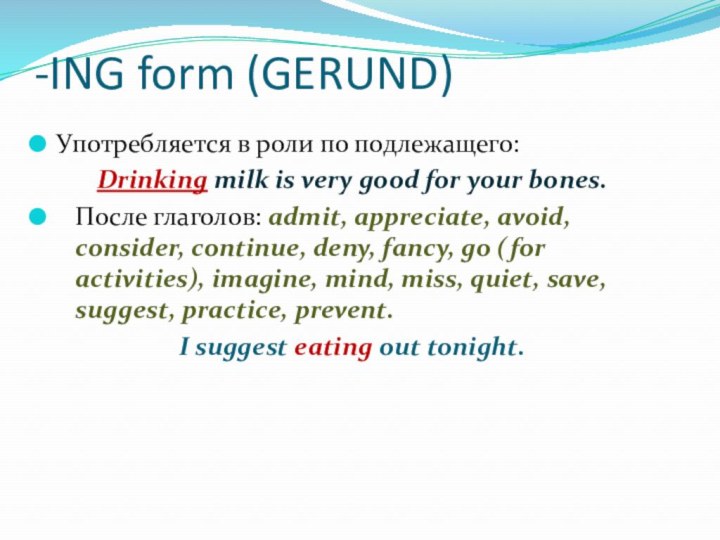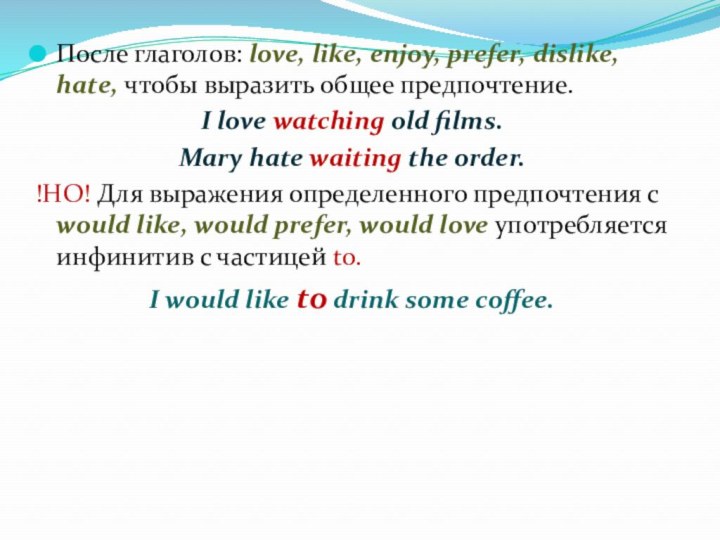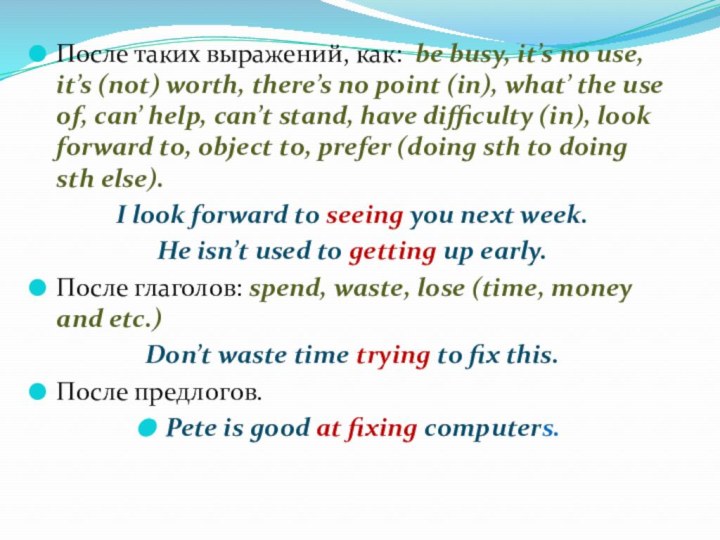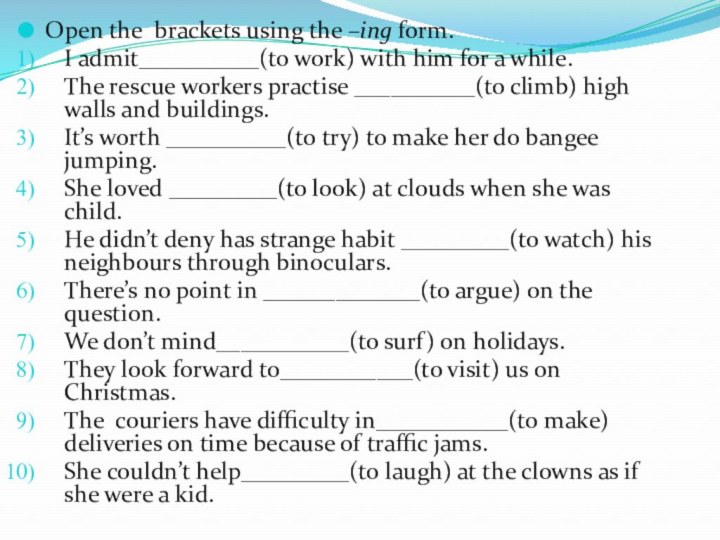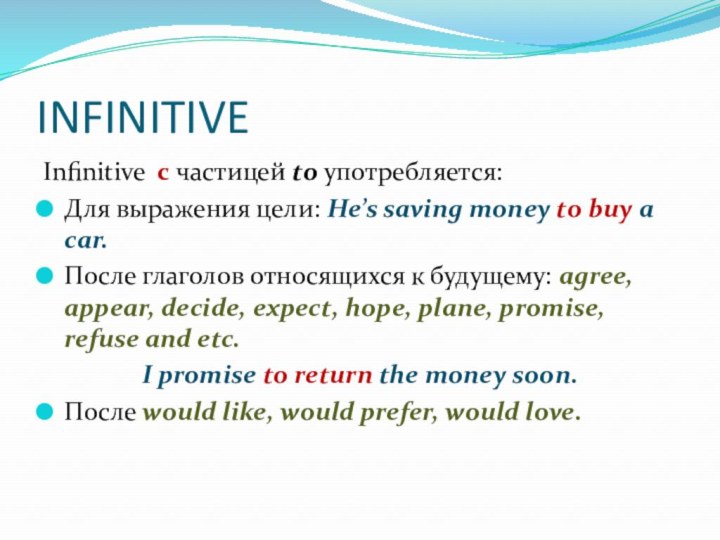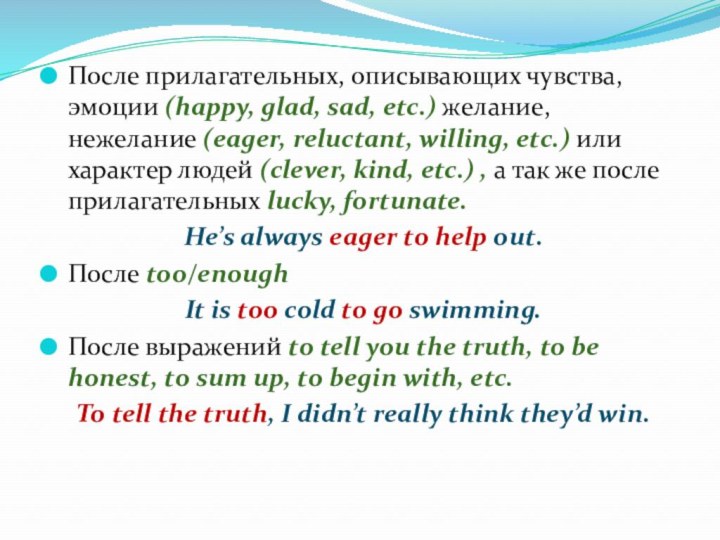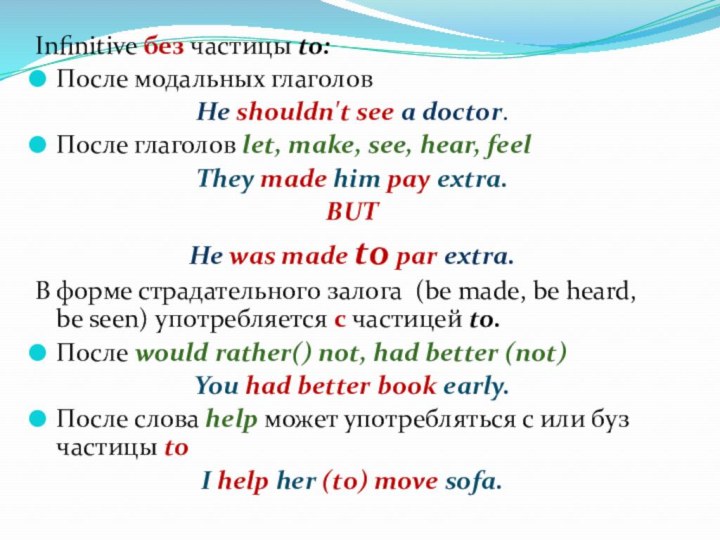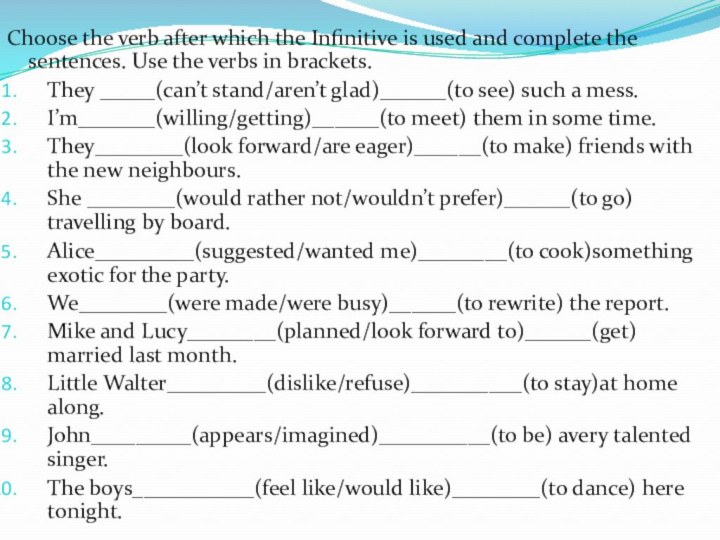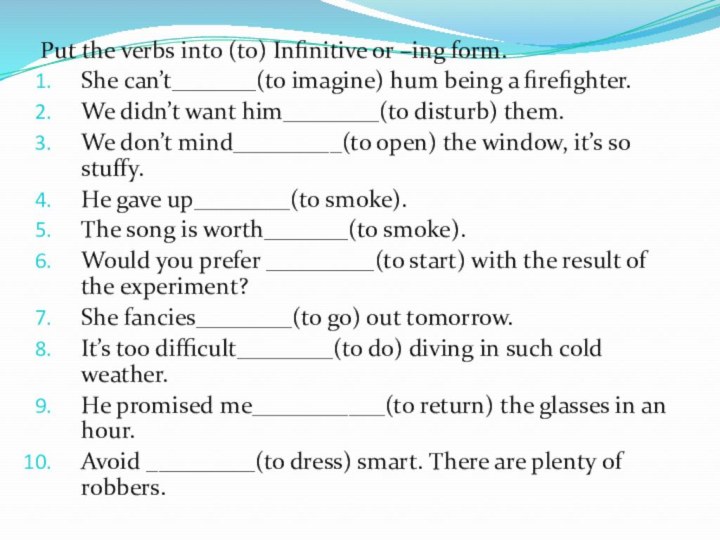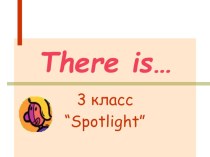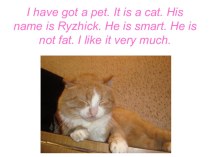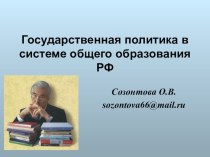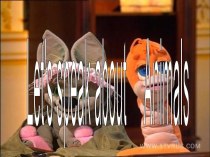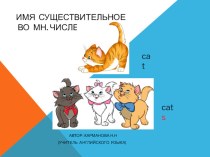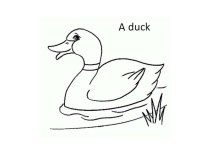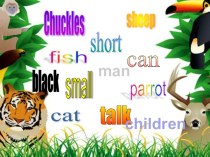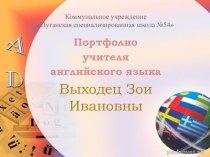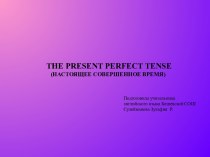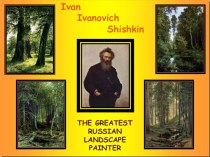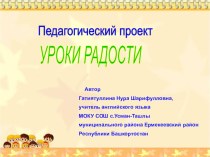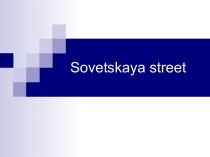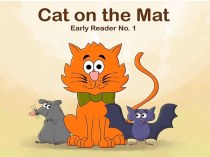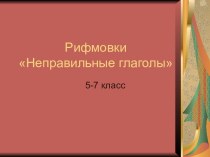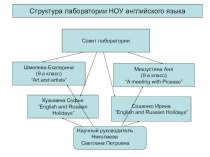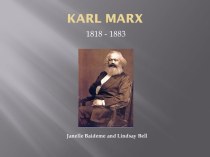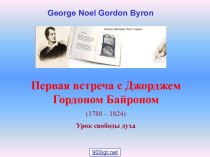Слайд 2
-ING form (GERUND)
Употребляется в роли по подлежащего:
Drinking
milk is very good for your bones.
После глаголов: admit,
appreciate, avoid, consider, continue, deny, fancy, go (for activities), imagine, mind, miss, quiet, save, suggest, practice, prevent.
I suggest eating out tonight.
Слайд 3
После глаголов: love, like, enjoy, prefer, dislike, hate,
чтобы выразить общее предпочтение.
I love watching old films.
Mary hate
waiting the order.
!НО! Для выражения определенного предпочтения с would like, would prefer, would love употребляется инфинитив с частицей to.
I would like to drink some coffee.
Слайд 4
После таких выражений, как: be busy, it’s no
use, it’s (not) worth, there’s no point (in), what’
the use of, can’ help, can’t stand, have difficulty (in), look forward to, object to, prefer (doing sth to doing sth else).
I look forward to seeing you next week.
He isn’t used to getting up early.
После глаголов: spend, waste, lose (time, money and etc.)
Don’t waste time trying to fix this.
После предлогов.
Pete is good at fixing computers.
Слайд 5
Open the brackets using the –ing form.
I admit__________(to
work) with him for a while.
The rescue workers practise
__________(to climb) high walls and buildings.
It’s worth __________(to try) to make her do bangee jumping.
She loved _________(to look) at clouds when she was child.
He didn’t deny has strange habit _________(to watch) his neighbours through binoculars.
There’s no point in _____________(to argue) on the question.
We don’t mind___________(to surf) on holidays.
They look forward to___________(to visit) us on Christmas.
The couriers have difficulty in___________(to make) deliveries on time because of traffic jams.
She couldn’t help_________(to laugh) at the clowns as if she were a kid.
Слайд 6
INFINITIVE
Infinitive c частицей to употребляется:
Для выражения цели: He’s
saving money to buy a car.
После глаголов относящихся к
будущему: agree, appear, decide, expect, hope, plane, promise, refuse and etc.
I promise to return the money soon.
После would like, would prefer, would love.
Слайд 7
После прилагательных, описывающих чувства, эмоции (happy, glad, sad,
etc.) желание, нежелание (eager, reluctant, willing, etc.) или характер
людей (clever, kind, etc.) , а так же после прилагательных lucky, fortunate.
He’s always eager to help out.
После too/enough
It is too cold to go swimming.
После выражений to tell you the truth, to be honest, to sum up, to begin with, etc.
To tell the truth, I didn’t really think they’d win.
Слайд 8
Infinitive без частицы to:
После модальных глаголов
He shouldn't see
a doctor.
После глаголов let, make, see, hear, feel
They made
him pay extra.
BUT
He was made to par extra.
В форме страдательного залога (be made, be heard, be seen) употребляется с частицей to.
После would rather() not, had better (not)
You had better book early.
После слова help может употребляться с или буз частицы to
I help her (to) move sofa.
Слайд 9
Сhoose the verb after which the Infinitive is
used and complete the sentences. Use the verbs in
brackets.
They _____(can’t stand/aren’t glad)______(to see) such a mess.
I’m_______(willing/getting)______(to meet) them in some time.
They________(look forward/are eager)______(to make) friends with the new neighbours.
She ________(would rather not/wouldn’t prefer)______(to go) travelling by board.
Alice_________(suggested/wanted me)________(to cook)something exotic for the party.
We________(were made/were busy)______(to rewrite) the report.
Mike and Lucy________(planned/look forward to)______(get) married last month.
Little Walter_________(dislike/refuse)__________(to stay)at home along.
John_________(appears/imagined)__________(to be) avery talented singer.
The boys___________(feel like/would like)________(to dance) here tonight.
